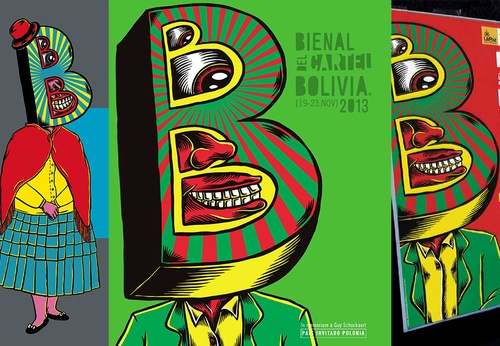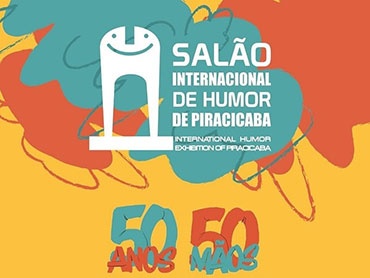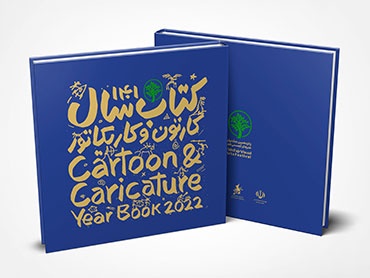
The Dream of a Museum in Every Major City for the Palestinian Narrative
The “Unprecedented Site”: The Dream of a Museum in Every Major City for the Palestinian Narrative
July 20, 2025, 6:30 AM
The Palestine Museum, which opened as the US Palestine Museum in Woodbridge, Connecticut, has expanded across the Atlantic with its first European branch opening last month in the Scottish capital, Edinburgh.
During the opening ceremony, Faisal Saleh, the museum’s founder and tireless visionary, welcomed guests with a quiet intensity that contrasted with the storm of ideas surrounding him. Born into a family of Palestinian refugees displaced from the village of Salama near Jaffa in 1948, Faisal’s journey from the occupied West Bank to US tech entrepreneur and “museum builder” feels like a lifetime condensed into a singular mission: to create a cultural space where Palestinians can own their narratives.
Indeed, the Palestine Museum is no ordinary art museum. While it proudly showcases contemporary Palestinian art, from the hauntingly expressive to the defiantly hopeful, it also offers something increasingly rare: a platform where Palestinian culture, history, and resistance can be centered without apology or censorship.
"I will not rest until there is a Palestine Museum in every major city in the world," says Faisal Saleh.
This commitment has become increasingly urgent. In the wake of Israel's ongoing genocide in Gaza and a relentless campaign of forced displacement and settlement expansion in the occupied West Bank, the lines between humanitarian crisis, cultural erasure, and political repression have blurred. Yet cultural and academic institutions in Europe and the United States often remain silent—or actively suppress Palestinian voices.
An example of this occurred last month, when Dr. Karameh Kuemmerle, a Palestinian-American physician and one of the founders of Doctors Against Genocide, was invited to speak at Quinnipiac University about the medical realities in Gaza. But the university administration abruptly canceled her talk, deeming the topic “too political.”
The Palestine Museum stepped in. Dr. Kuemmerle delivered her talk at the museum, to a packed audience, with the full event now available on the museum’s YouTube channel.
This was more than a change of venue; it was a statement. The museum is making space for Palestinian voices, however uncomfortable that may be for some.
This ethos continues in Edinburgh. The European branch, located in a city known for its literary and artistic effervescence, aims to be a living archive and cultural center, highlighting not only visual artists, but also filmmakers, musicians, academics, and activists. When renowned orthopedic surgeon and founder of Medical Aid for Palestinians Dr. Swee Ang recently had her lecture in another UK city canceled due to "controversy," the museum's Edinburgh branch offered her an alternative venue.
Plans are already underway for a series of public lectures, exhibitions, and collaborations. But more than that, the Edinburgh branch represents an expansion of the museum's mission—to insist that Palestine is not a marginal issue, but a central one, and that its people have the right not only to exist, but to create, document, and speak freely.
Source

- January 27, 2026
Aztecs in the Empire City: “The People Without History” in The Met


- January 27, 2026
The Evolution of Art: From Classical to Digital

- January 27, 2026
What are Visual Arts and Why Do They Matter Today?

- January 27, 2026
Selected Illustration Gallery of Venezuelan Artists

- January 27, 2026
Selected Caricature Gallery of Cuban Artists

- January 26, 2026
Bolivia Poster Biennial (BICeBé 2013)

- January 26, 2026
Selected Gallery of Paintings by Peruvian Artists

- January 26, 2026
Selected Gallery of Watercolor Paintings by Peruvian Artists

- January 27, 2026
The exhibitions "From Tàpies to Siqueir…

- January 19, 2026
The Pulse of Art, Design, and Culture R…

- January 19, 2026
The Argentine museum celebrates 25 year…

- January 08, 2026
Latin American Pavilion Among the New A…

- January 07, 2026
Material Art Fair 2026

- January 05, 2026
The Latin American Pavilion Marks a Mil…

- December 31, 2025
the 10 million-dollar sales of 2025

- December 30, 2025
MALBA Doubles Collection and Reposition…

- December 29, 2025
The FEMSA Collection will celebrate its…

- December 25, 2025
“Ancestral Artist”: A Look at the Craft…

- December 25, 2025
Winner of the 13th Most Important Conte…

- December 25, 2025
Malba Acquires the Daros Latinamerica C…

- December 24, 2025
2026, a Key Year in Cultural Exchange B…

- December 23, 2025
Sacred Art Celebrates Christmas Through…

- December 22, 2025
MACA Inaugurates Exhibitions of Fontana…

- December 20, 2025
Costantini Acquires the Daros Collectio…

- December 17, 2025
ARCOmadrid Announces Participating Gall…

- December 17, 2025
Eduardo Costantini Acquired a Collectio…

- December 15, 2025
From Chile to Gaza: «Palestine Cries,»

- December 15, 2025
Latin American Artists MACLA and Montal…

- October 08, 2023
Illustrations reflect the brutal Israel…

- December 25, 2023
The jury statement of the Iran-Brazil F…

- March 21, 2024
The history of art in Palestine

- July 29, 2023
History of Caricature in Brazil

- September 01, 2023
Neural Filters in new photoshop 2023

- April 20, 2024
Poignant Image of Grief Wins Mohammed S…

- May 22, 2025
Brady Izquierdo’s Personal Exhibition O…

- June 29, 2024
Exhibition at Centro MariAntonia contra…

- February 18, 2024
7 Ways to Understand What Visual Arts A…

- October 21, 2023
Erick Meyenberg and Tania Ragasol at th…

- May 15, 2024
Eleven murals for Gaza painted across t…

- March 30, 2024
illustration websites in Latin America

- August 09, 2023
Venezuela mural expresses solidarity wi…

- March 14, 2024
museum of statue of van gogh

- May 25, 2025
Bordalo II to hold exhibition in Paris …

- March 15, 2024
museum of sculpture of Salvador Dali

- May 20, 2024
Latin American Festival of Performing A…

- January 23, 2025
Art Palm Beach 2025

- March 18, 2025
Works by Cuban Artist Eduardo Abela in …

- January 04, 2025
Material Art Fair 2025

- May 15, 2024
Eleven murals for Gaza painted across t…

- February 18, 2024
7 Ways to Understand What Visual Arts A…

- January 02, 2025
13 commemorations that will mark the cu…

- October 17, 2023
The influence of Latin American artists…

- February 03, 2024
THE HISTORY OF NAIF ART

- July 02, 2024
One of the largest urban art galleries …

- November 17, 2023
Fernando Botero's work is booming after…

- October 08, 2023
Illustrations reflect the brutal Israel…

- July 29, 2023
Piracicaba International Humor Exhibiti…

- December 25, 2023
The jury statement of the Iran-Brazil F…

- November 06, 2023
Heba Zagout: Palestinian artist murdere…

- December 10, 2023
Sliman Mansour and Palestinian art on t…

- March 14, 2024
museum of statue of van gogh

- February 01, 2025
A maior exposição de Botero em Barcelona

- March 21, 2024
The history of art in Palestine

- July 20, 2024
First International Mail Art Biennial 2…

- April 20, 2024
Poignant Image of Grief Wins Mohammed S…

- October 30, 2023
Palestinian turns images of the Gaza co…

- September 01, 2023
Neural Filters in new photoshop 2023

- February 08, 2024


